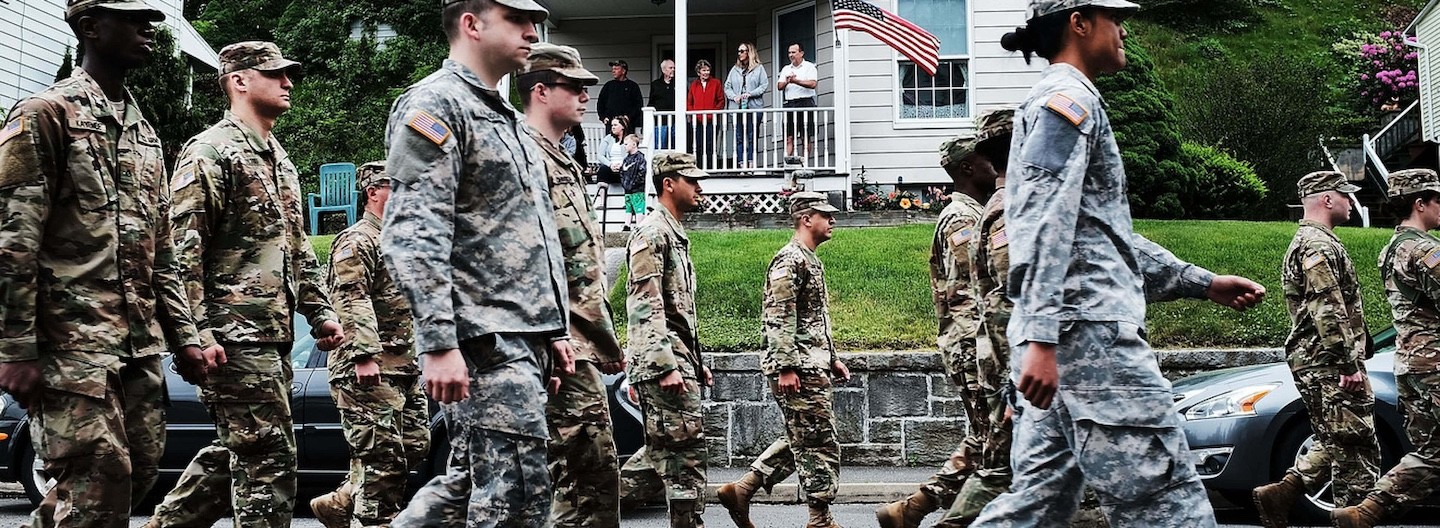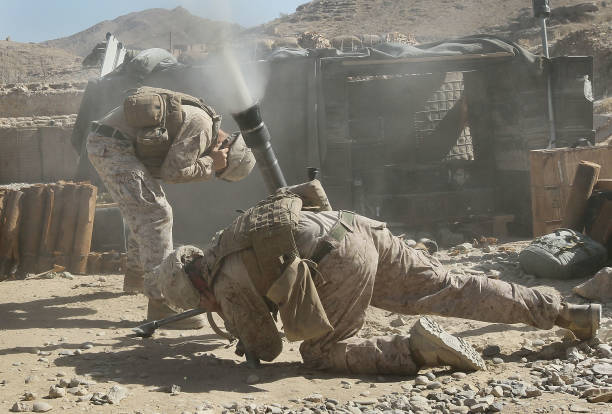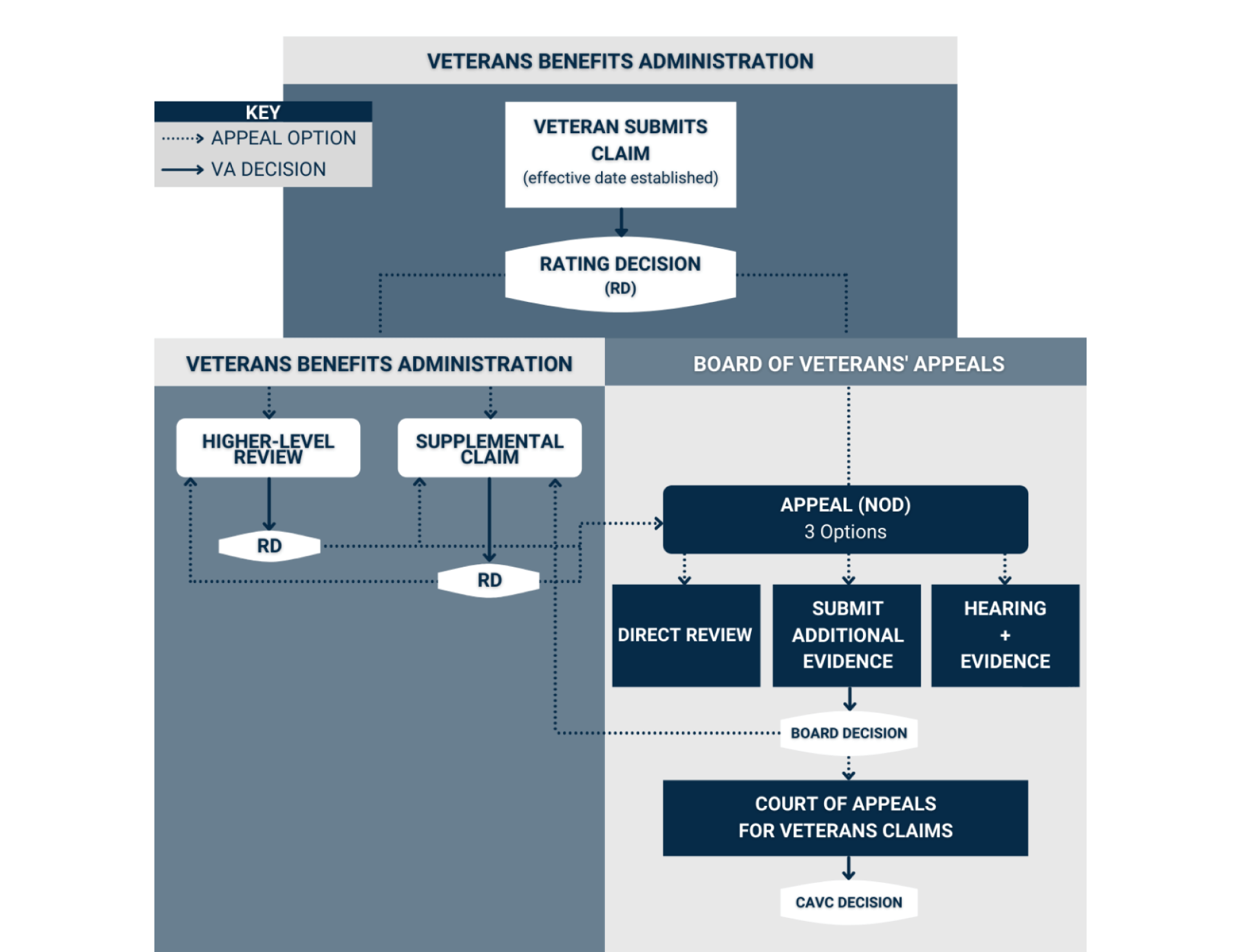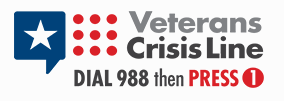Appealing to the U.S. Court of Appeals
for Veterans Claims (CAVC)
|
What Decisions Can You Appeal
|
When Can You Appeal
|
What Evidence Will CAVC Consider
|
Best Option If
|
|
|
- Within 120 days of the date of the BVA decision the Veteran is appealing
|
- Only the evidence that was before the BVA at the time of the decision the Veteran is appealing
|
- The Veteran does not believe a Supplemental Claim is worth trying, or
- The Veteran wants to challenge the VA’s interpretation of the Constitution, U.S. laws, or VA regulations
|
The CAVC is a national court in Washington, D.C., that hears appeals by Veterans who are not satisfied with the BVA’s decision. The CAVC hears cases related to disability benefits, survivor benefits, education benefits, and reimbursement for unauthorized medical payments.
When appealing to the CAVC, Veterans should understand that they only review your existing claim file in most cases. A judge or panel of judges will review the claim before making a decision. They also may request oral arguments, but this is less common.
Decisions at the CAVC can:
- Interpret constitutional, statutory, and regulatory provisions to determine if the BVA decision or broader VA policy implemented them correctly
- Determine the meaning or application of the BVA’s decision
- Require the VA to follow the CAVC’s ruling
Upon reviewing the case, the CAVC will either affirm the BVA’s decision or remand the case (meaning the CAVC sends the case back to the BVA to correct its decision). Sometimes the BVA cannot correct its decision without remanding the case back to the VA Regional Office to help the Veteran develop the claims and obtain more evidence.
Veterans wishing to appeal to the CAVC have 120 days from the BVA’s decision to file an appeal. They must also identify their attorney unless they choose to appeal the decision pro se (on their own). Keep in mind, if a Veteran appeals their decision pro se, they must follow all the court’s rules and procedures, which can be complicated.
Veterans who appeal to the CAVC pro se are typically at a disadvantage. However, Berry Law has experience handling appeals at the CAVC. Contact our team today if you need assistance appealing a BVA decision to the CAVC.
Click here to learn more about appeals to the CAVC.



